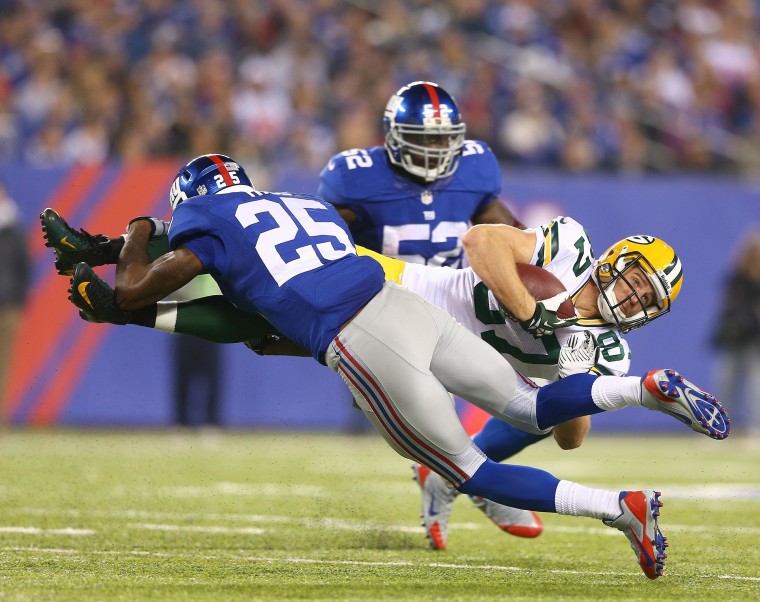Professional football players “know what they’re buying into” when they play the sport and risk concussions and brain damage, President Barack Obama said in a lengthy profile in the current issue of the New Yorker magazine.
Writer David Remnick said in the profile of Obama that he asked the president “if he didn’t feel at all ambivalent about following” professional football.
“I would not let my son play pro football,” Obama replied. “But, I mean, you (Remnick) wrote a lot about boxing, right? We’re sort of in the same realm.”
“At this point, there’s a little bit of caveat emptor,” Obama said. “These guys, they know what they’re doing. They know what they’re buying into. It is no longer a secret. It’s sort of the feeling I have about smokers, you know?”
In the piece, Obama also comments on the role he believes racial prejudice plays in American politics.
“There’s no doubt that there’s some folks who just really dislike me because they don’t like the idea of a black President,” he said. “Now, the flip side of it is there are some black folks and maybe some white folks who really like me and give me the benefit of the doubt precisely because I’m a black President.”
He also argues that conservatives’ preference for policies being decided by state governments can’t be separated from the intertwined history of states’ rights and slavery in the years leading to the Civil War and racial prejudice since then.
“You can be somebody who, for very legitimate reasons, worries about the power of the federal government—that it’s distant, that it’s bureaucratic, that it’s not accountable—and as a consequence you think that more power should reside in the hands of state governments,” he said.
But Obama said “that philosophy is wrapped up in the history of states’ rights in the context of the civil-rights movement and the Civil War and (South Carolina Sen. John C.) Calhoun. There’s a pretty long history there.”
He urged progressives to not “dismiss out of hand arguments against my Presidency or the Democratic Party or Bill Clinton or anybody just because there’s some overlap between those criticisms and the criticisms that traditionally were directed against those who were trying to bring about greater equality for African-Americans.”
Bur on the other hand, he said conservatives should see that “if I am concerned about leaving it up to states to expand Medicaid that it may not simply be because I am this power-hungry guy in Washington who wants to crush states’ rights but, rather, because we are one country and I think it is going to be important for the entire country to make sure that poor folks in Mississippi and not just Massachusetts are healthy.”
Obama also told Remnick that he is troubled that “middle-class kids don’t get locked up for smoking pot, and poor kids do. And African-American kids and Latino kids are more likely to be poor and less likely to have the resources and the support to avoid unduly harsh penalties.”
But he cautioned the movement for legalization of marijuana raises “some difficult line-drawing issues. If marijuana is fully legalized and at some point folks say, ‘Well, we can come up with a negotiated dose of cocaine that we can show is not any more harmful than vodka,’ are we open to that? If somebody says, ‘We’ve got a finely calibrated dose of meth, it isn’t going to kill you or rot your teeth,’ are we O.K. with that?”
